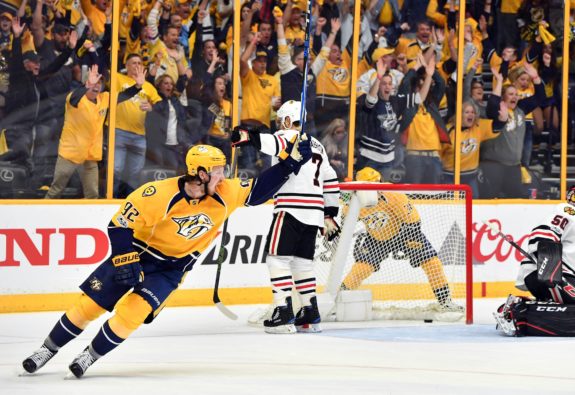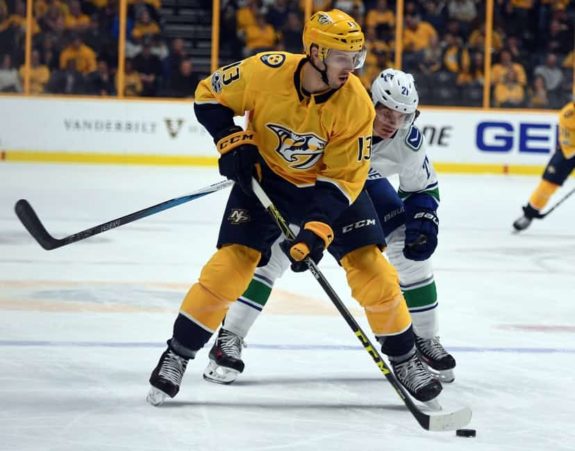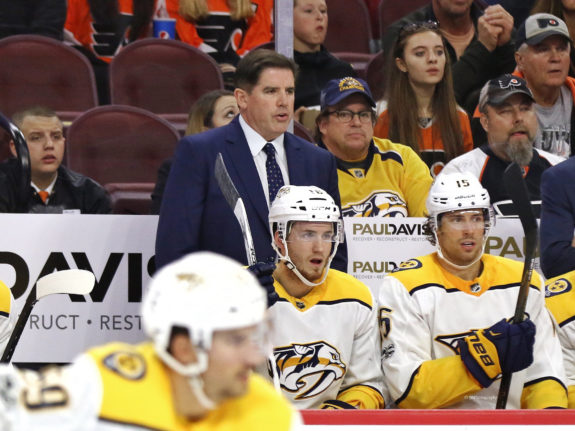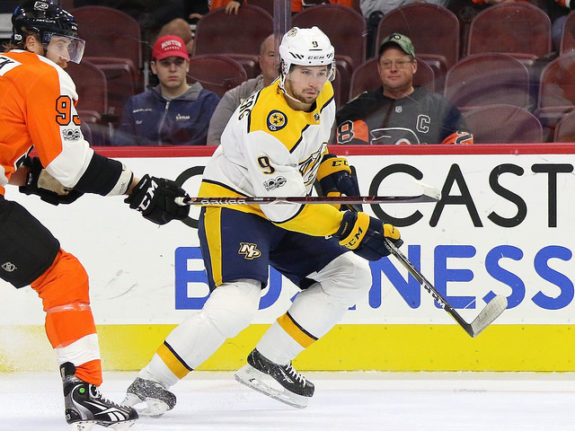While most didn’t think it would turn out the way it did, 2017 was quite the year for the Nashville Predators. After a mid-season slump, Nashville surged at the end of the season to sneak into the final Stanley Cup playoff berth. If you were to ask members of the media, the overall feeling was that the Predators had no shot at winning the Cup, let alone making it out of the first round.

It only took four games for Nashville to dispose of the Chicago Blackhawks in the first round outscoring them 13-3. Then the St. Louis Blues and Anaheim Ducks fell as well, sending the Predators to the franchise’s first Stanley Cup Final. While it didn’t work out the way the Predators wanted, the team reached new heights in 2017 and the rest of the hockey world took notice.
With the turn of the calendar, we say goodbye to the successes and failures of 2017 and hello to the opportunities that lie ahead in 2018 with three things that the Predators need to do in order to capitalize on their 2017 success and bring home their first Stanley Cup.
Start Strong, End Strong
The first period is crucial for a team to establish their style of play – whether that be fast and furious, physical and punishing, or a hybrid of the two. During their magical 2017 season, opponents outscored Nashville in the first period 55-67, with the Preds having to scratch and claw their way back to secure desperately needed two points.
When the Predators score first, they will likely win the game. So far in the 2017 season, Nashville has flipped the script and holds a positive scoring margin in the first period. Success in the initial period has carried over to the second period where the Predators have consistently been a powerhouse team; the third period, however, leaves a lot to be desired.

If there is one thing that Predators fans feel at the start of every third period in which the team is winning, it is “please don’t blow this game.” Whether the lead is one goal or three goals, Nashville has managed to let easily winnable games fall from their grasp being outscored 35 to 44. If Nashville wants to hoist the Cup, they’ll need to continue their fast starts and make sure they slam the door shut in the third.
Stay Out of the Penalty Box
When a team goes on the power play, it provides the opportunity to get back in the game if they are behind or bury their opponents if they are ahead. This season, the Predators uncharacteristically have an inability to play a clean game from night to night.
Compared to last season when the Preds ranked seventh in the league, averaging 10:09 of penalty time per game, this season they are the worst with an average of 13:41 penalty minutes per game. With 207 penalties taken and the next closest team being the Anaheim Ducks 20 penalties away, coach Peter Laviolette has to ask more from his players.

Nashville has three players in the top-30 of penalties taken in 2017-18, Austin Watson, P.K. Subban, and Ryan Johansen. Though players are frequently in the box, one positive is the team’s aggressive penalty kill that has a league-high 12 short-handed goals. Still, Nashville needs to keep five men on the ice as much as possible to prevent game-changing momentum swings.
Maintain Good Health
In the 2016-17 season, the Predators experienced several injuries and odd ailments, as many teams do, but thanks in part to their deep farm system they didn’t suffer nearly as bad as they could have. The 2017-18 season has been fairly forgiving to Nashville on the injury front, aside from missing Ryan Ellis to a long-term knee injury.
In order to continue their success since the Kyle Turris trade, Nashville will need to play smart to stay healthy. Leading scorer Filip Forsberg is on the IR with an upper-body injury which will sideline him for roughly four to six weeks. Fortunately, their roster has plenty of other players capable of rising to the occasion to account for the lack of Forsberg’s offensive production.

The Preds are third in the Central Division and fifth overall in the Western Conference. Injuries to key players down the stretch of the season can quickly change the trajectory of a team and steer them from a playoff contender to a playoff pretender in the blink of an eye. In particular, the health and endurance of goaltender Pekka Rinne will be of the utmost importance as he aims to maintain his strong play so far this season.